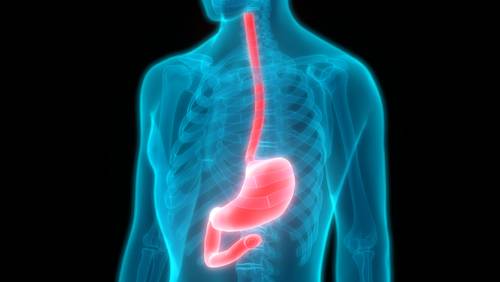Weight Loss Surgery in Obese PH Patients Improves Lung Function, Study Reports

Pulmonary hypertension (PH) patients who underwent weight loss surgery were able to lose a significant amount of weight and showed improvements in lung function, a study reports.
The study, “Bariatric surgery in patients with pulmonary hypertension,” was published in the journal Surgery for Obesity and Related Diseases.
Metabolic disease, obstructive sleep apnea, insulin resistance, and obesity hypoventilation syndrome are some of the most common obesity-related risk factors of PH progression.
Bariatric surgery procedures are stomach and intestine surgeries that limit the amount of food the stomach can hold, aiding in weight loss. Studies have shown that these surgeries can help manage obesity-related PH risk factors, and might improve PH symptoms. However, any surgery in PH patients is risky because of the possibility of infection and pulmonary complications.
Researchers in this study assessed data collected from PH patients who underwent bariatric surgeries including sleeve gastrectomy, adjustable gastric band, banded gastric plication, and Roux-en-Y gastric bypass to investigate the effects of the surgery on weight loss and lung function.
The team analyzed data from 61 PH patients, 50 of whom were women, who had bariatric surgery at the Cleveland Clinic in Ohio between 2005 and 2015. The median age of the participants was 58.
The percentage of excess weight loss, or the difference in weight before and after surgery, and body mass index (BMI), a measure of body fat based on height and weight, are common indicators of success in bariatric surgery. Weight and BMI data were collected before the surgery, after one year, and at the median follow-up of 37 months.
At the one-year point, data was available for 57 patients.
The Pulmonary Hypertension News forums are a place to connect with other patients, share tips and talk about the latest research. Check them out today!
The percentage of excess weight loss in the overall group was 51% at one year and 43% at 37 months. This trend of weight loss was similar across all types of bariatric surgery.
Additionally, all participants showed a marked decrease in median BMI at one year (36 kg/m2) and 37 months (38 kg/m2), compared with before the surgery (49 kg/m2).
Regarding the patients’ lung function, right ventricular systolic pressure (RVSP) was examined by echocardiography. At the median follow-up of 22 months, RVSP data was available for 28 patients. The median RVSP at this time was significantly reduced (40 mmHg) compared with pre-surgery values (44 mmHg), indicating an improvement in lung function.
Complications reported within 30 days of surgery were considered early postoperative complications and determined based on the standards set by the American Society of Metabolic and Bariatric Surgery. They included respiratory failure requiring breathing assistance, pulmonary embolism (clot formation) and edema (swelling due to excess fluid), pneumonia, surgical site infection, gastrointestinal leak, dehydration, and marginal ulcer.
Only 10 patients (16%) reported early postoperative complications, and four of the 10 patients had pulmonary complications. No deaths were reported in this period.
“Bariatric surgery can be performed without prohibitive complication rates in patients with PH. In our experience, bariatric patients with pulmonary hypertension achieved significant weight loss and improvement in RVSP,” the team concluded.
At the Cleveland Clinic, a team of experienced bariatric surgeons and physicians, pulmonologists, cardiologists, anesthesiologists, psychologists, and dietitians are responsible for the care of the patient before and after the surgery, the study noted. The researchers attributed the lower complication rate seen in the study to this multidisciplinary team approach to treating patients.
“Bariatric surgery is relatively safe and feasible in patients with PH if the patient is appropriately optimized before surgery and managed carefully after. A multidisciplinary team approach can play an important role in achieving good outcomes in this high-risk population,” the researchers wrote.







